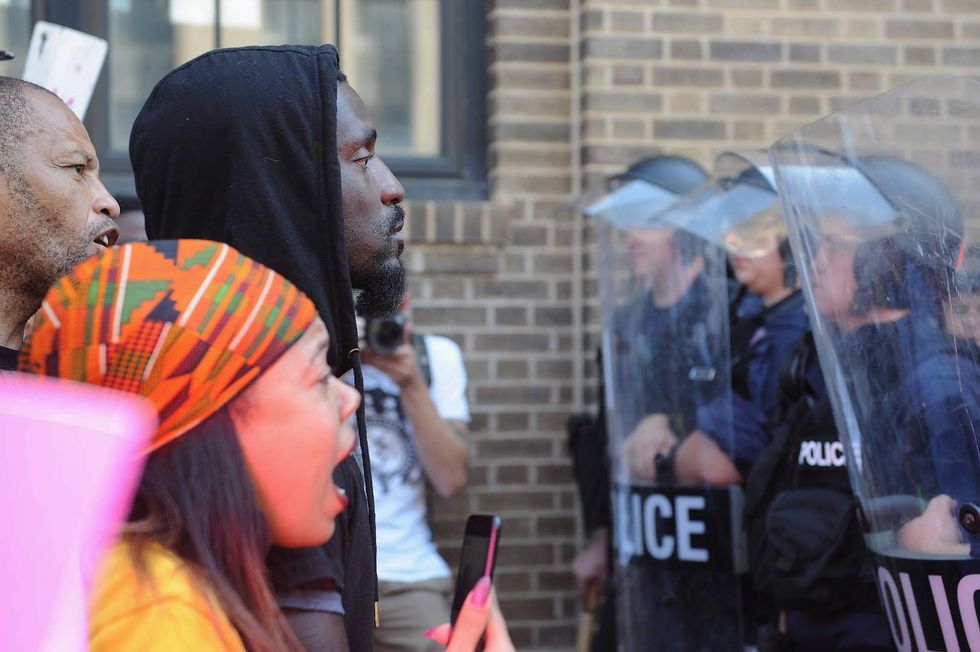
A U.S. District Judge ruled that Black Lives Matter can't be sued because it is a social movement. (Michael B. Thomas/Getty Images)

“‘Black Lives Matter,’ as a social movement, cannot be sued, however, in a similar way that a person cannot plausibly sue other social movements such as the Civil Rights movement, the LGBT rights movement or the Tea Party movement."
That was the ruling from Chief Judge Brian Jackson of the U.S. District Court in Baton Rouge, Louisiana, on Thursday, in response to a lawsuit by a police officer who was struck by a rock at a 2016 Black Lives Matter protest.
The protest where the officer was struck by a rock occurred in July 2016 after Alton Sterling was killed by a Baton Rouge police officer.
There is another lawsuit pending against Black Lives Matter and several of its leaders, filed by a sheriff's deputy who was wounded by a gunman who killed three other police officers in Baton Rouge last summer. The deputy is accusing BLM of inciting the violence that led to his injury and the three deaths.
The officer's attorney, Donna Grodner, was making the argument that BLM is indeed an organization.
“It’s organized. They have meetings. They solicit money. They have national chapters,” Grodner said. “This shows a level of national organization.”
The judge disagreed.
“Although many entities have utilized the phrase ‘black lives matter’ in their titles or business designations, Black Lives Matter itself is not an entity of any sort,” Jackson wrote.
While Black Lives Matter as a whole cannot be sued, individuals associated with the group can be sued if a legitimate case can be brought against them.
In this lawsuit, the officer named well-known BLM activist DeRay Mckesson. At the protest in question, Mckesson was present and arrested, but not charged, along with nearly 200 other protesters, but is not accused of throwing the rock that struck the officer.
Mckesson and about 90 others who were arrested sued the city of Baton Rouge, claiming the police were "militarized and aggressive," and the group received total settlement of $100,000 in the lawsuit.